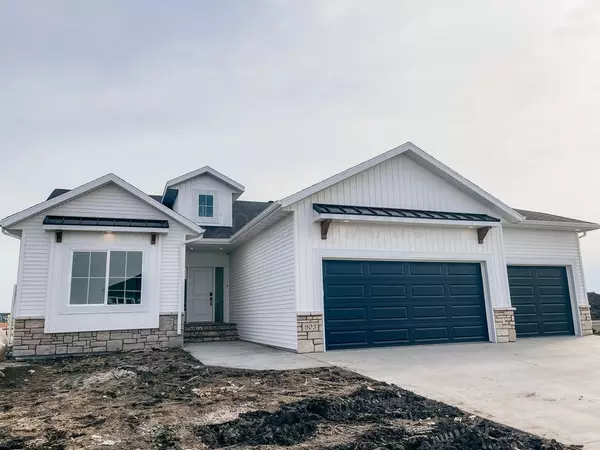How much can I afford to spend on a home in Fargo, ND?
Introduction
Purchasing a home is a significant financial decision that requires careful planning and consideration. One of the crucial factors to determine before embarking on this journey is how much you can afford to spend on a home in Fargo, ND. By understanding your financial capabilities and setting a realistic budget, you can ensure a smooth home-buying process while avoiding unnecessary financial strain. In this article, we will explore various aspects that influence your home affordability in Fargo, ND and provide expert guidance to help you make informed decisions.
Factors to Consider When Determining Affordability
Income and Debt-to-Income Ratio
Your income plays a pivotal role in determining how much you can afford to spend on a home in Fargo, ND. Lenders typically use the debt-to-income (DTI) ratio to evaluate your financial capacity. This ratio is calculated by dividing your total monthly debt payments by your gross monthly income and multiplying the result by 100. A lower DTI ratio indicates a healthier financial profile, increasing your chances of securing a favorable mortgage.
Credit Score and Interest Rates
Another crucial aspect that influences your home affordability is your credit score. Lenders use your credit score to assess your creditworthiness and determine the interest rate on your mortgage. A higher credit score generally leads to lower interest rates, making homeownership more affordable in the long run. It's essential to review and improve your credit score before applying for a mortgage.
Down Payment and Loan Options
The amount you can afford to spend on a home in Fargo, ND is also influenced by your down payment. A larger down payment reduces the loan amount, resulting in lower monthly mortgage payments. Additionally, there are various loan options available, each with its own requirements and benefits. Researching and understanding these options can help you identify the most suitable loan program that aligns with your financial situation and goals.
Monthly Expenses and Budgeting
Assessing your monthly expenses is crucial when determining how much you can afford to spend on a home. Consider your current expenses, such as utilities, groceries, transportation, and insurance, along with potential future expenses like property taxes and homeowners association fees. Creating a detailed budget will provide you with a clear overview of your financial obligations and allow you to allocate funds for mortgage payments comfortably.
Pre-Approval and Affordability Calculators
Obtaining a mortgage pre-approval is highly recommended before initiating the home-buying process. A pre-approval provides you with an accurate estimate of how much you can borrow based on your financial information and creditworthiness. Additionally, online affordability calculators can be useful tools to get a rough idea of your home affordability based on your income, debt, and other factors.
How much can I afford to spend on a home in Fargo, ND?
Determining your specific home affordability in Fargo, ND requires a comprehensive analysis of your financial situation. However, as a general guideline, financial experts suggest that your monthly housing costs, including the mortgage payment, property taxes, insurance, and other related expenses, should not exceed 28% to 30% of your gross monthly income. This is commonly referred to as the front-end ratio.
Moreover, your total debt obligations, including your housing costs, should ideally not exceed 36% to 43% of your gross monthly income. This is known as the back-end ratio. Lenders often use these ratios to assess your ability to handle mortgage payments comfortably.
To get a clearer picture, let's consider an example. Suppose your gross monthly income is $5,000. Based on the recommended front-end ratio of 28% to 30%, your monthly housing costs should ideally be between $1,400 and $1,500. Similarly, applying the back-end ratio of 36% to 43%, your total monthly debt obligations, including housing costs, should range from $1,800 to $2,150.
It's important to note that these ratios are general guidelines, and individual circumstances may vary. Factors such as your credit score, down payment, and other financial commitments can influence your specific home affordability in Fargo, ND. Consulting with a mortgage professional can provide you with personalized advice tailored to your unique situation.
Frequently Asked Questions (FAQs)
1. How do I calculate my debt-to-income ratio?
To calculate your debt-to-income (DTI) ratio, add up all your monthly debt payments, including credit card bills, car loans, student loans, and any other outstanding debts. Divide this total by your gross monthly income and multiply by 100. The resulting percentage is your DTI ratio.
2. Can I afford a home in Fargo, ND if I have student loan debt?
Having student loan debt doesn't necessarily disqualify you from affording a home in Fargo, ND. Lenders take various factors into account when evaluating your mortgage application. By managing your debt responsibly, improving your credit score, and maintaining a stable income, you can increase your chances of qualifying for a mortgage.
3. Are there any down payment assistance programs available in Fargo, ND?
Yes, there are down payment assistance programs available in Fargo, ND. These programs provide financial assistance to homebuyers, particularly first-time buyers, to help cover the down payment and closing costs. Researching and exploring these programs can be beneficial in making homeownership more affordable.
4. Should I prioritize paying off debt or saving for a down payment?
It depends on your individual circumstances. Paying off high-interest debts, such as credit card balances, can improve your credit score and increase your borrowing power. However, saving for a down payment is also essential to reduce your loan amount and potentially secure a better interest rate. Consider striking a balance between debt repayment and saving to achieve your homeownership goals effectively.
5. What other costs should I consider besides the mortgage payment?
In addition to the mortgage payment, there are several other costs associated with homeownership. These may include property taxes, homeowner's insurance, private mortgage insurance (PMI) if applicable, maintenance and repairs, utilities, and potential homeowners association (HOA) fees. Factoring in these expenses when determining affordability is crucial to avoid financial strain.
6. How can I improve my credit score before applying for a mortgage?
To improve your credit score, start by reviewing your credit report for any errors or discrepancies. Pay your bills on time, keep your credit utilization low, and avoid opening new credit accounts unnecessarily. Additionally, paying off existing debts and maintaining a consistent payment history can have a positive impact on your credit score over time.
Conclusion
Determining how much you can afford to spend on a home in Fargo, ND is a crucial step in the home-buying process. By considering factors such as income, credit score, down payment, and monthly expenses, you can set a realistic budget and make informed decisions. Remember to consult with mortgage professionals, utilize online tools for affordability estimates, and explore down payment assistance programs to maximize your home affordability. With careful planning and financial prudence, you can find a home in Fargo, ND that aligns with your budget and fulfills your homeowners
Recent Posts











"My job is to find and attract mastery-based agents to the office, protect the culture, and make sure everyone is happy! "
